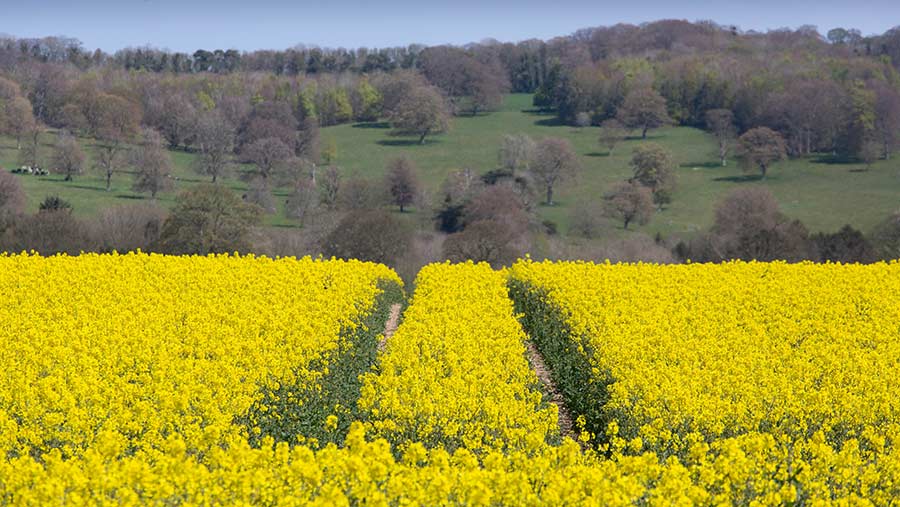Opinion: Now is the time to take up the carbon challenge
 © Tim Scrivener
© Tim Scrivener Farming is a long-term business that needs time to change course and adapt. So it is important to understand the future and what long-term obstacles and opportunities may be looming.
The past few years have seen the sector preoccupied by Brexit, and the past 18 months by Covid.
This has pushed aside much of the debate and planning for climate change and the journey towards net zero – a process with the potential to radically change the way we farm and manage land in the future.
See also: How do three main farm carbon calculators compare?
About the author
 Brian Richardson
Brian Richardson
Brian Richardson is head of agriculture at Virgin Money.
With the COP26 climate change conference in Glasgow starting in late October, he suggests now is the time to start planning for a low-carbon future.
The industry itself was quick to pick up on government direction around climate change, and came up with its own commitment to a net-zero timetable by 2045, hoping that the journey to meet those commitments would become clearer over time.
More recently, we have had various food manufacturers and supermarkets coming forward with their own, even tighter, timescales.
Much of this is driven by investment requirements, and clear direction from the likes of the Bank of England on what companies should be doing, and expecting of their customers.
This top-down approach has left many farmers questioning what all this means for them.
Well, with on-farm carbon audits increasing, there are now some answers emerging and this is helpful in identifying where the challenges lie and what carbon mitigation can be put in place.
The good news is that these reports, when undertaken with high-quality support and advice, are creating deliverable roadmaps for farms to reduce their carbon footprint.
In many cases, this can also improve productivity.
Of course, this is yet another requirement for farmers to get done, pay for and understand. While this is not mandatory, it is tempting to ask “why bother?”
I would strongly suggest farmers get on board the carbon journey, start to understand the implications for their business, and what the journey towards net zero will look like.
We can argue about how carbon is measured and the bigger debate around methane in the carbon dioxide equivalent calculations, but what is already established will get you on that journey.
This will take time and care to navigate, but could also support decision-making in readiness for new government support arrangements.
The agricultural team at Virgin Money has been working with farmers on piloting carbon audits, and getting into the practicalities of the net-zero journey. It is complicated, and this is where a good consultant comes in.
There are some quick wins, and for a relatively small investment, you will have another piece of the jigsaw in planning your future business.
The COP26 conference this year will again highlight the challenge around global warming and emissions, and there will no doubt be headlines blaming farming for some of this.
A lot of change is on its way, and as we emerge from the pandemic and move back to normality, the carbon agenda will return with a bang.
So whether we like it or not, there will be a focus on farming.
It is almost always the case that those who are proactive and get on with things see benefits, so I would suggest now is a good time for farmers to be getting to grips with carbon and get ahead of the debate – rather than be left behind to play catch up.
